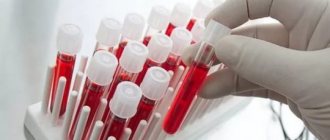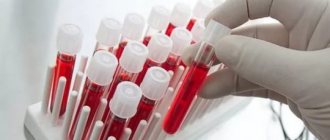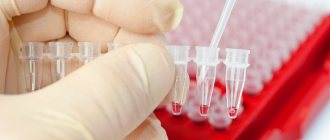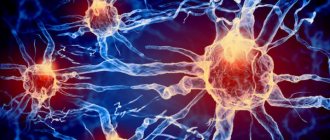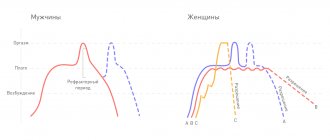Testosterone blood test Testosterone is a hormone whose levels can significantly affect fertility, puberty, and secondary sexual characteristics. Find out the cost
Low testosterone levels A significant deviation in testosterone levels from the norm may indicate the presence of serious pathologies. Where can you check your testosterone levels?
Blood test at home You can take a blood test without leaving your home. Call a specialist to your home
How to properly prepare for tests? In order for the test results to be as reliable as possible, it is necessary to properly prepare for their delivery. More details
Promotions and special offers Special offers and discounts on diagnostic laboratory services allow you to save on medical examinations. View current promotions
Testosterone is the main sex hormone in men, but it is also produced in women - although not in such significant quantities. This hormone performs a number of important functions, in particular, it regulates male fertility and is responsible for puberty. A change in the level of this hormone in both women and men can indicate a number of serious disorders, which is why testosterone testing is prescribed quite often for representatives of both sexes.
Complexes with this research
Fitness monitoring Examination to select physical activity and monitor the body's condition 6,780 ₽ Composition
Fitness control of sports nutrition Assessment of liver function, hormone levels and metabolism when taking sports nutrition 5,140 ₽ Composition
Anti-aging diagnostics. Hormonal balance Indicators of aging processes in the female hormonal system 6,250 RUR Composition
IN OTHER COMPLEXES
- Preventive check-up 6,300 ₽
- Male hormones 6,180 RUR
- Advanced anti-aging diagnostics in postmenopause RUB 29,230
- Male anti-aging diagnostics RUB 13,300
- Advanced male anti-aging diagnostics RUB 33,710
LH (luteinizing hormone)
It is given on the 3rd–8th or 19th–21st days of a woman’s menstrual cycle, for a man - on any day. Strictly on an empty stomach. This hormone “ripens” the follicle in a woman, ensuring the production of estrogen, ovulation, and the formation of the corpus luteum. In men, LH stimulates the formation of sex hormone binding globulin and increases the permeability of the seminiferous tubules to testosterone. This increases the concentration of testosterone in the blood, which promotes sperm maturation.
In women, the level of luteinizing hormone depends on the phase of the menstrual cycle. The peak concentration of LH occurs at ovulation, after which the level of the hormone drops and “stays” throughout the luteal phase at lower values than in the follicular phase. This is necessary for the functioning of the corpus luteum in the ovary. In women, the concentration of LH in the blood is maximum in the period from 12 to 24 hours before ovulation and is maintained throughout the day, reaching a concentration 10 times higher compared to the non-ovulatory period. During pregnancy, LH concentration decreases.
During the examination for infertility, it is important to track the ratio of LH and FSH. Normally, before the onset of menstruation it is 1, a year after the onset of menstruation - from 1 to 1.5, in the period from two years after the onset of menstruation and before menopause - from 1.5 to 2.
When should you take a Testosterone test?
For men and women:
- Infertility;
- Hair loss;
- Acne;
- Seborrhea;
- Adrenal tumors;
- Monitoring the results of corticosteroid use.
Among women:
- Hirsutism;
- Endometriosis;
- Uterine fibroids;
- Lack of menstruation;
- Menstrual irregularities;
- Lack of ovulation;
- Habitual miscarriage;
- Polycystic ovary syndrome;
- Neoplasms of the mammary gland.
For men:
- Prostatitis;
- Decreased sexual desire;
- Problems with potency;
- Climax;
- Hypogonadism;
- Osteoporosis.
FSH (follicle stimulating hormone)
The analysis is taken on the 3rd–8th or 19th–21st days of a woman’s menstrual cycle, for a man - on any day. Strictly on an empty stomach. In women, FSH stimulates the growth of follicles in the ovaries and the formation of estrogen. It promotes the growth of the endometrium in the uterus. Reaching a critical level of FSH in the middle of the cycle leads to ovulation.
In men, FSH is the main stimulator of the growth of the seminiferous tubules. FSH increases the concentration of testosterone in the blood, thereby ensuring sperm maturation. It happens that the hormone works at full strength, but there is no point where it is in demand. This happens when a man's testicles are small or have suffered from some kind of surgery or infection.
Detailed description of the study
Testosterone is a hormone produced by the Leydig cells of the endocrine tissue of the male testicles. Testosterone is responsible for regulating sperm production, genital growth and maintaining proper levels of sexual desire and potency.
In women, testosterone is produced by the gonads and adrenal glands. Testosterone in women stimulates libido and is also responsible for hair growth in the groin and armpit areas.
A lack of this hormone in men can lead to impaired carbohydrate metabolism, cardiac and psychoemotional disorders, decreased muscle and bone density, and impotence.
Testosterone levels vary throughout the day, peaking in the morning (between 4 and 8 a.m.) and lowest in the evening (between 4:00 p.m. and 8:00 p.m.). Physical activity also increases testosterone levels.
How to donate blood for hormones?
Murzaeva Irina Yurievna
Endocrinologist, Preventive Medicine Doctor
December 13, 2011
It has become good practice to check your hormonal levels even before any health problems begin. Below I will talk about the rules for taking tests; to make the search easier, we will “divide” the hormonal levels into systems.
- Hormones of the thyroid gland, parathyroid glands. These are TSH, free and total T4, free and total T3, antibodies to TPO, antibodies to TG, antibodies to rTSH, some others - calcitonin, parathyroid hormone. They must be taken on an empty stomach (that is, “empty stomach”), or 4-5 hours after eating. Tablets (such as L-thyroxine, Euthyrox, Tyrosol, Mercazolil, etc.) are taken after the test. If you have been ill or are suffering from ARVI, ARI, it is better to get tested 4-5 weeks after recovery. These tests have no connection with the menstrual cycle.
- Sex hormones (for women).
 These are LH, FSH, estradiol, progesterone, prolactin, testosterone (free and total), DHA-S, 17-OH-progesterone, androstenedione, dehydrotestosterone. It is advisable to take the test on an empty stomach, for prolactin - for 2 days, refrain from intense physical activity, drinking alcohol, or sex. Take it after the temperature drops, in the morning 1-2 hours after waking up (preferably no later). Taking medications, not only hormonal ones, is also taken into account (therefore, present a list of medications you are taking to the doctor, and do not describe their approximate appearance with words - “well, these are white, small, in a blue box, in general, I don’t remember what they are called”) FSH, LH , ESTRADIOL, TESTOSTERONE, DHA-S, 17-OH-PROGESTERONE, ANDROSTENDEDIONE, PROLACTIN - given on 2-5 days from the start of menstrual bleeding (this is the 1st phase of the cycle) with a 28-day cycle, with a cycle of more than 28 days - 5-7 days , including after bleeding caused by progesterone, on days 2-3 with a cycle of 23-21 days. PROGESTERONE, sometimes PROLACTIN is taken on days 21-22 of a 28-day cycle (phase 2), or calculated on days 6-8 after ovulation (if an ovulation test was performed). DEHYDROTESTOSTERONE is given on any day of the cycle. For men, the test conditions are the same (hormones are slightly different)
These are LH, FSH, estradiol, progesterone, prolactin, testosterone (free and total), DHA-S, 17-OH-progesterone, androstenedione, dehydrotestosterone. It is advisable to take the test on an empty stomach, for prolactin - for 2 days, refrain from intense physical activity, drinking alcohol, or sex. Take it after the temperature drops, in the morning 1-2 hours after waking up (preferably no later). Taking medications, not only hormonal ones, is also taken into account (therefore, present a list of medications you are taking to the doctor, and do not describe their approximate appearance with words - “well, these are white, small, in a blue box, in general, I don’t remember what they are called”) FSH, LH , ESTRADIOL, TESTOSTERONE, DHA-S, 17-OH-PROGESTERONE, ANDROSTENDEDIONE, PROLACTIN - given on 2-5 days from the start of menstrual bleeding (this is the 1st phase of the cycle) with a 28-day cycle, with a cycle of more than 28 days - 5-7 days , including after bleeding caused by progesterone, on days 2-3 with a cycle of 23-21 days. PROGESTERONE, sometimes PROLACTIN is taken on days 21-22 of a 28-day cycle (phase 2), or calculated on days 6-8 after ovulation (if an ovulation test was performed). DEHYDROTESTOSTERONE is given on any day of the cycle. For men, the test conditions are the same (hormones are slightly different) - Adrenal hormones. (These are cortisol, renin, aldosterone, metanephrine, normetanephrine, adrenaline, norepinephrine, etc.). Take on an empty stomach, preferably between 8-9 am (daily peak secretion - more related to cortisol!). Before donating renin, aldosterone, metanephrines, etc., take some groups of medications for 2 weeks: Veroshpiron, and ACE (enalapril), B-blockers (Egilok), Aspirin and some others.
- Hormones of the pituitary gland (the main endocrine gland). These are: ACTH, growth hormone (growth hormone). I have already told you about FSH, LH, prolactin. ACTH is given as cortisol, on an empty stomach, 8-9 am, sometimes at 13.00 (and/or 20.00) - as prescribed by the doctor. STG (ego analogue of IGF1) on an empty stomach, at any time.
- The hormone insulin is given on an empty stomach, usually along with blood sugar. Sometimes together with a test for “glucose tolerance” (then 2 times - on an empty stomach and 2 hours after the “sugar syrup”).
- 24-hour urine testing (17-KS and 17-OX) is not currently used; the reliability of these tests is very low. But daily urine testing for cortisol is often done! To do this, urine is collected 24 hours from 8.00 one day to 8.00 another day (the entire volume of collected urine is recorded), it is mixed and 150-200 ml is brought to the laboratory, along with a record of the allocated volume. Some laboratories ask you to bring all your urine, you need to clarify this issue in advance! The same applies to 24-hour urine a) for calcium and phosphorus, b) metanephrines c) vanillylmandelic acid (for these you need to take a special preservative from the laboratory! to collect urine). When collecting daily urine, the following are excluded from the diet: beets, carrots, bananas, turnips, citrus fruits, and calcium supplements.
In endocrinology, hormonal tests are also used, but they are a separate topic.
References
- Dedov, I. I. Endocrinology: textbook / 2nd ed., revised. and additional - M.: GEOTAR-Media, 2013. - 432 p. — ISBN: 978-5-9704-2535-1.
- Kronberg, M. Reproductive endocrinology: textbook. - M.: GEOTAR-Media, 2011. - 416 p. — ISBN: 978-5-91713-029-3, 978-1-4160-2911-3.
- Tkachuk, V. A. Introduction to molecular endocrinology. Reception and intracellular signaling / ed. V. A. Tkachuk - M.: GEOTAR-Media, 2021. - 240 p. — ISBN 978-5-9704-4264-7.
- Khera, M. Testosterone Therapies, 2021. - Vol. 43(2). — P. 185-193. doi: 10.1016/j.ucl.2016.01.004.
What it is
In men, androgens work as natural anabolics: they stimulate the formation of protein in muscle tissue, increase basal metabolism and accelerate the formation of red blood cells in the red bone marrow. If there are enough androgens, a male body type with broad shoulders and narrow hips is formed, and the male genital organs fully develop and function.
In women, androgens also take part in puberty. They are responsible for hair growth in the armpits and pubic area, promote sebum production, strengthen bones and, apparently, increase libido. Testosterone is also a precursor to the most important female sex hormone, estradiol, so the level of this androgen indirectly affects female fertility.
Why is it prescribed to men?
There are five androgens in the male body. These are androstenedione, testosterone, dihydrotestosterone (DHT), dehydroepiandrosterone (DHEA) and dehydroepiandrosterone sulfate (DHEA-S.
In men, all forms of androgens, except DHT, are synthesized in the testes. DHT, the most active version of testosterone, is produced only in the tissues of internal organs. A small amount of androstenedione, DHEA and DHEA-S are formed in the adrenal cortex and normally do not play an important biological role.
Normal levels of androgens in the blood in men:
| Testosterone | DHT | DEA | DEA-S |
| 0.2-1.0 ng/ml | 14-77 ng/dL, rarely determined because the analysis does not reflect the intracellular concentration of the hormone | 0.9-6.0 µg/l | 2800-6400 µg/l |
“As a rule, urologists-andrologists ask the patient to take tests for androgens when the patient is concerned about the symptoms of so-called hypogonadism. This problem is usually faced by men after 45-50 years of age, whose libido and endurance decrease, and their general tone deteriorates, says Konstantin Lokshin, head of the center for operative urology, oncourology and andrology at GMS Clinic. “The urologist will be interested in testosterone levels, but sometimes an additional test for sex hormone binding globulin (SHBG) may be required.”
In addition, sometimes tests for androgens are prescribed for delayed or, conversely, premature puberty, suspected tumor and problems with potency. With these problems, the testes and adrenal glands may produce too much or, conversely, too little androgens.
The level of testosterone in the blood increases with tumors of the testes and adrenal glands. In the first case, the testes create more testosterone than necessary, and this is reflected in the test results. In the second case, the adrenal glands create too much androsterone, the excess of which is converted into testosterone - and this also affects the result.
The level of testosterone in the blood decreases when the testes are malfunctioning. There can be many reasons: from congenital genetic diseases and injuries received in adulthood to infectious diseases, severe stress or excessive physical exertion. Sometimes this leads to loss of muscle mass, decreased libido and gynecomastia - female-type breast enlargement.
The level of DHEA and DHEA-S in the blood increases with male infertility associated with hyperplasia, that is, with excessive growth of the adrenal glands. In adult men, excess adrenal androgens can suppress gonadal function and cause delayed sexual development or infertility.
Levels of DHEA and DHEA-S in the blood may decrease in Addison's disease, a condition in which the adrenal glands fail to produce enough androgens, and in hypopituitarism, a condition in which the pituitary gland does not produce enough hormones that stimulate the adrenal glands. In men, this may cause a decrease in libido, erectile dysfunction or infertility.

